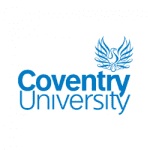Human resources management is a critical function of any organization. It plays a vital role in ensuring that a company has the right people in the right roles, and that they are motivated, productive, and engaged.
In this article, we will explore the importance of human resources management and how it can help organizations achieve their goals and objectives.
Recruitment
The first and arguably most important role of human resources management is to attract, recruit, and retain the best talent.
This is critical for the long-term success of any organization, as the right employees can drive innovation, productivity, and growth. In order to attract and retain the best talent, organizations must create an environment that is conducive to success and a culture that is appealing to potential employees.
This includes giving them competitive pay and benefits, giving them chances to grow and develop, and helping them find a good balance between work and life.
Training and development
Human resources management is important not only for finding and keeping the best employees, but also for helping them grow and learn. This includes creating training programs and providing opportunities for professional development that help employees acquire new skills and advance in their careers.
A well-trained and skilled workforce is essential for the long-term success of any organization, as it is better equipped to adapt to change and meet the challenges of the competitive business environment.
Performance management
Human resources is also in charge of managing how well employees do their jobs and figuring out how effective the whole organization’s workforce is. This means making sure employees know what is expected of them, giving them feedback and coaching, and recognizing and rewarding them for their work.
With an effective human resources management function, companies can make sure they have a high-performing workforce that works toward the company’s goals.
Company culture
Another important aspect of human resources management is fostering a positive work culture and a sense of community among employees. This includes creating a culture that promotes teamwork, collaboration, and communication.
A positive work culture can help to improve employee engagement, increase productivity and improve employee morale. It can also make it more attractive for people to work for the company, increasing employee retention and helping the company to attract better talent in the future.
Compliance
Human resources management is also in charge of making sure that an organization follows all laws and rules. This includes compliance with federal, state, and local laws that regulate employment and labor relations, such as the Fair Labor Standards Act, the Americans with Disabilities Act, and the Family and Medical Leave Act.
Human resources management must also ensure that the organization’s policies and practices are consistent with these laws and regulations. Failure to comply with these laws and regulations can result in significant legal and financial consequences for the organization.

Introduction to International Human Resources Management
Discover human resources management theory and practice, and learn how HR policies and strategies differ around the world.
Introduction to International Human Resources Management
Discover human resources management theory and practice, and learn how HR policies and strategies differ around the world.
Career opportunities in human resources management
There are a variety of career options available for people who study human resources management. Some of the most common include:
- Human Resources Generalist: This role involves managing a variety of HR functions, such as recruiting, training and development, and employee relations.
- Recruiter: Recruiters are responsible for sourcing and hiring new employees for an organization.
- Talent Acquisition Manager: Talent acquisition managers plan and manage an organization’s recruitment and hiring efforts.
- Training and Development Manager: These professionals design, plan and implement training programs to improve the skills and knowledge of employees.
- Employee Relations Manager: Employee relations managers handle employee complaints, conflicts and other issues, and may also be responsible for mediating disputes between employees and management.
- Compensation and Benefits Manager: This role involves managing an organization’s compensation and benefits programs, and determining how they align with the company’s overall business strategy.
- Talent Management Manager: This role aims to improve talent development and career development by creating a strategy for improvement, including assessment, training and mentoring programs.
- Human Resources Information Systems (HRIS) Analyst: These professionals are responsible for maintaining and analyzing an organization’s HR data and systems.
- Labor Relations Manager: This role manages labor-management relations and negotiates collective bargaining agreements.
- Diversity, Equity and Inclusion (DEI) Manager: These professionals develop and implement strategies to promote and maintain a diverse, equitable and inclusive workplace.
- Organizational Development Consultant: This role involves assessing and analyzing an organization’s structure and culture, and developing plans to improve performance and efficiency.
These are just a few examples of the many different career paths available to people who study human resources management. Since the field is broad and always changing, there are many other paths to take depending on your skills and interests.
How to start in human resources management
Online human resources courses are a great way to start or advance your career in the field of HR. These courses provide a comprehensive and flexible education that can be completed at your own pace, without having to attend physical classes. They are also convenient for individuals who have busy schedules or who are looking to switch careers.
In most courses, you can learn the fundamentals of HR, including recruitment, performance management, employee relations, and compensation and benefits. You will also gain knowledge on current trends and best practices in human resources management, as well as develop important skills, such as conflict resolution, communication, and leadership.
Online courses are also an affordable option for those who want to learn about HR. They typically offer a wide range of courses, from introductory courses to more advanced courses, so you can choose an HR program that matches your level of experience and goals. Additionally, many courses provide certification upon completion, which can be a valuable addition to your resume and help you stand out in the job market.

Leadership and Communication Professional Certificate
Develop your leadership and communication abilities and learn new techniques in this professional certification from Harvard Business School.
Leadership and Communication Professional Certificate
Develop your leadership and communication abilities and learn new techniques in this professional certification from Harvard Business School.
